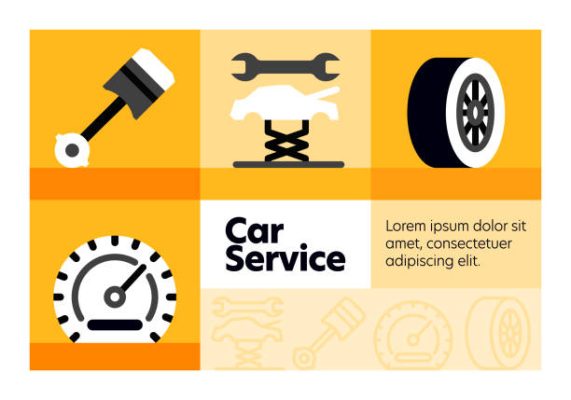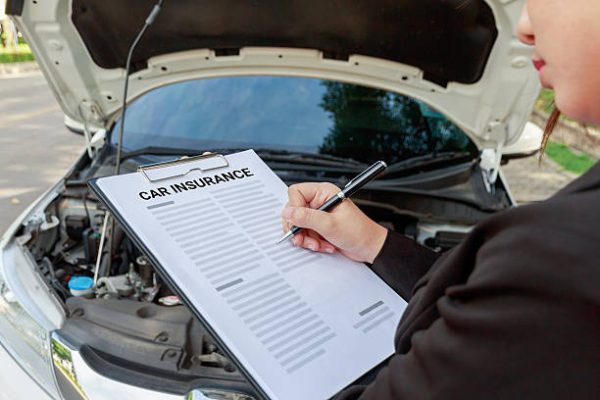Regular car maintenance is vital for ensuring your vehicle runs efficiently, stays safe, and retains its value. From oil changes and tire checks to fluid top-offs and detailing, following essential auto care practices helps prevent costly repairs and prolongs the life of your car. Whether you’re a new car owner or someone looking to improve your vehicle care routine, understanding these auto care essentials can save you time and money in the long run.
In this guide, we’ll cover the most important aspects of vehicle maintenance, offering practical tips to keep your car in optimal condition.
1. Regular Oil Changes: The Lifeblood of Your Engine
One of the most critical components of vehicle maintenance is ensuring your engine oil is regularly changed. Oil lubricates engine parts, reducing friction and heat, and helps prevent wear and tear. Over time, engine oil breaks down and becomes less effective, which can lead to engine damage.
Key Considerations:
- Oil Change Frequency: Most modern vehicles require an oil change every 5,000 to 7,500 miles, but check your owner’s manual for manufacturer recommendations.
- Synthetic vs. Conventional Oil: Synthetic oil offers better performance and lasts longer than conventional oil. While more expensive, it’s worth considering, especially for high-performance vehicles.
- Oil Level Checks: Between oil changes, regularly check the oil level using the dipstick to ensure it’s at the recommended level.
Pro Tip:
- Change the Oil Filter: Always change the oil filter when performing an oil change to prevent contaminants from circulating in your engine.
2. Tire Maintenance: Ensure Safety and Efficiency
Proper tire maintenance is essential for vehicle safety, fuel efficiency, and overall performance. Regularly inspecting your tires helps prevent blowouts, improve handling, and extend tire life.
Key Tire Care Tips:
- Tire Pressure: Under-inflated tires reduce fuel efficiency and increase the risk of tire wear, while over-inflated tires can affect handling. Check your tire pressure monthly using a pressure gauge and ensure it’s in line with your vehicle’s recommendations (usually found in the owner’s manual or on a sticker inside the driver’s door).
- Tire Rotation: Rotating your tires every 6,000 to 8,000 miles promotes even wear and extends their lifespan. This is especially important for vehicles with front-wheel drive, where the front tires typically wear out faster.
- Tread Depth: Ensure your tires have enough tread for proper grip, especially in wet or icy conditions. If the tread is less than 2/32 of an inch, it’s time to replace the tires.
Pro Tip:
- Use the Penny Test: Insert a penny into the tire tread with Lincoln’s head upside down. If you can see the top of Lincoln’s head, your tires are worn and should be replaced.
3. Brake System Checks: Stay Safe on the Road
Your vehicle’s braking system is one of the most critical safety features, and keeping it in good working order is essential for safe driving. Regular brake inspections can help you avoid dangerous situations and expensive repairs.
Key Brake Care Tips:
- Brake Fluid: Brake fluid plays a vital role in transferring the force from your foot on the brake pedal to the brakes themselves. Check brake fluid levels regularly and have it replaced if it looks dark or dirty, as this indicates contamination.
- Brake Pads and Rotors: Brake pads wear out over time, reducing stopping power and potentially damaging the rotors. Listen for squealing or grinding noises, which could indicate worn pads. Have them inspected regularly and replaced as needed.
- Brake Response: If your brakes feel soft or unresponsive, it could indicate an issue with the brake lines, fluid, or pads. Have them checked immediately.
Pro Tip:
- Have Annual Brake Inspections: Even if there are no obvious signs of wear, it’s a good idea to have your brakes inspected annually to ensure everything is in good working order.
4. Fluid Checks: Keep Everything Running Smoothly
Your car relies on various fluids to keep systems like the transmission, brakes, and cooling systems operating efficiently. Regularly checking and topping off these fluids ensures your vehicle continues running smoothly.
Key Fluids to Monitor:
- Transmission Fluid: Transmission fluid lubricates and cools the transmission, preventing overheating and wear. Check the fluid level and color regularly—if it’s low or dark, it may be time for a top-off or replacement.
- Coolant: Coolant prevents your engine from overheating and helps maintain optimal operating temperatures. Check your coolant levels periodically, especially before long trips or during extreme weather.
- Power Steering Fluid: Low power steering fluid can cause hard steering and make it difficult to control the vehicle. Top off fluid as needed to ensure smooth steering.
- Windshield Washer Fluid: Keep washer fluid topped off to ensure clear visibility in all driving conditions.
Pro Tip:
- Look for Leaks: If you notice any fluid pooling under your car, have a mechanic inspect the vehicle to diagnose the source of the leak.
5. Battery Maintenance: Ensure Reliable Starts
A healthy battery is essential for starting your vehicle and powering electrical systems like lights, radio, and air conditioning. Regular battery maintenance can prevent inconvenient breakdowns and extend battery life.
Key Battery Care Tips:
- Clean Terminals: Corrosion can build up around battery terminals, causing poor connections. Clean the terminals periodically using a wire brush and a mixture of baking soda and water.
- Check Battery Voltage: Most batteries last 3-5 years, but it’s a good idea to check the voltage regularly. If the voltage is below 12.4 volts, it may be time to replace the battery.
- Ensure Proper Charging: Make sure your alternator is charging the battery correctly. If you notice dimming headlights or electrical issues, have your charging system inspected.
Pro Tip:
- Keep Jumper Cables Handy: Always have a set of jumper cables in your car in case of a dead battery. It’s a simple and inexpensive way to get back on the road quickly.
6. Detailing and Cleaning: Protect Your Vehicle’s Value
Keeping your vehicle clean both inside and out not only enhances its appearance but also protects it from long-term damage. Dirt, road salt, and other contaminants can cause rust and wear on the exterior, while spills and stains can degrade the interior.
Key Detailing Tips:
- Regular Washes: Wash your car regularly to remove dirt, bird droppings, and other contaminants that can damage the paint. Pay special attention to the undercarriage, where road salt can accumulate.
- Waxing: Waxing your car helps protect the paint from UV rays and environmental damage. Apply a coat of wax every 3-6 months for optimal protection.
- Interior Cleaning: Vacuum the interior and wipe down surfaces regularly to prevent dust buildup. Use appropriate cleaners for leather, fabric, or plastic surfaces.
Pro Tip:
- Protect Against UV Damage: Use sunshades and parking in shaded areas to protect your dashboard and upholstery from UV damage, which can cause fading and cracking over time.
Conclusion
Proper vehicle maintenance is essential to keep your car running efficiently, ensuring safety, performance, and longevity. By following these auto care essentials—such as regular oil changes, tire maintenance, brake checks, and fluid top-offs—you can avoid costly repairs and keep your vehicle in top condition for years to come.


